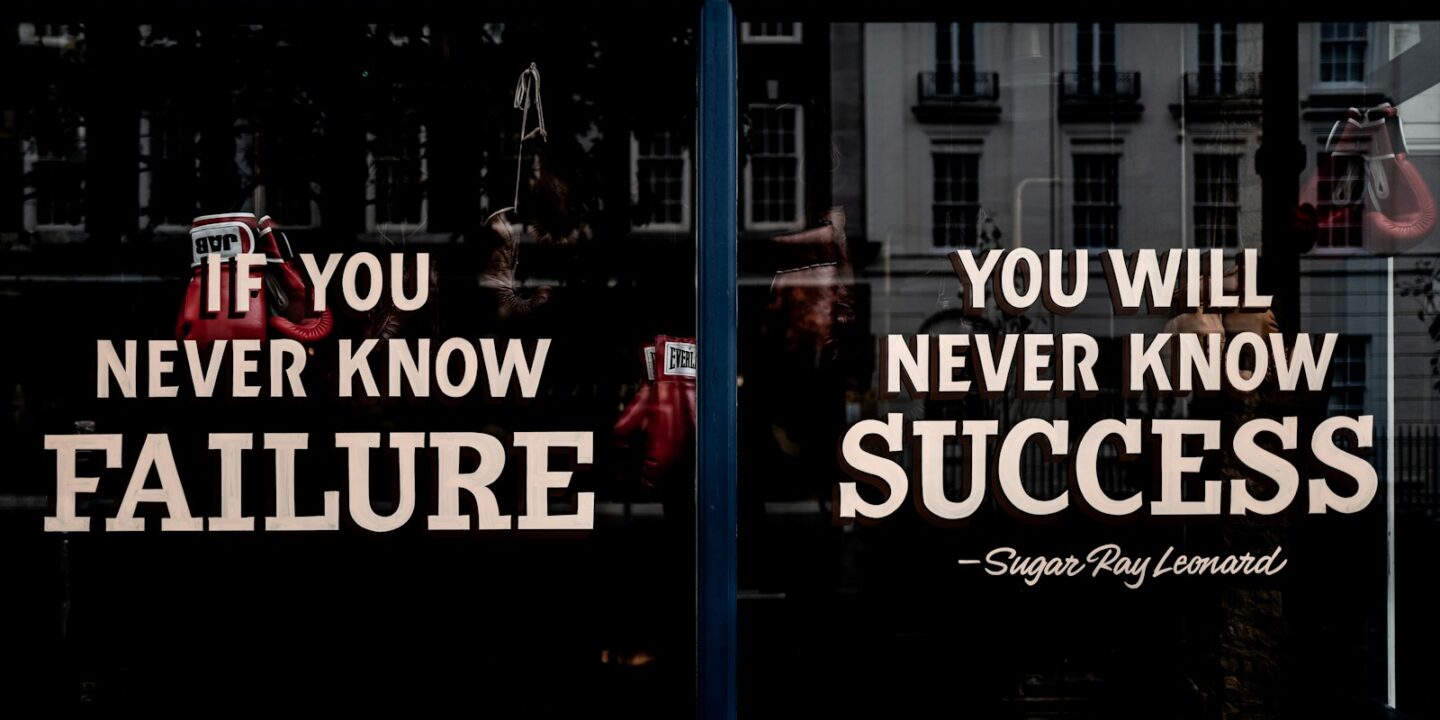
Introduction
Failure is an intrinsic aspect of the entrepreneurial journey, resonating universally among business leaders and innovators. It is a shared experience, often viewed through varying lenses by those who navigate the complexities of building and sustaining a business. For many entrepreneurs, setbacks are not merely obstacles but rather pivotal moments that contribute to growth, learning, and ultimately, success.
Research indicates that a significant percentage of startups—approximately 90%—fail, with the most common reasons including a lack of market demand, insufficient capital, and ineffective marketing strategies. These statistics underscore the inherent risks associated with entrepreneurship and paint a stark picture of the challenges faced by aspiring business owners. Yet, rather than serving as deterrents, such statistics can be reframed to inspire resilience and adaptability. Understanding that failure is a common occurrence allows entrepreneurs to approach their ventures with a mindset focused on learning and innovation, rather than fear of falling short.
Viewing failure as a valuable lesson transforms the narrative surrounding setbacks. Each misstep provides critical insights into market needs, operational efficiencies, and consumer behavior that can significantly inform future endeavors. By adopting a perspective that values lessons learned over the stigma associated with failure, entrepreneurs can build a robust foundation for future success. Embracing this mentality not only fosters personal resilience but also equips business leaders with the tools necessary to pivot and adapt in the face of adversity. As this blog post explores inspiring stories of entrepreneurs who have bounced back from failure, it serves to illustrate the significant role that resilience plays in achieving long-term success in the competitive world of business.
The Importance of Resilience in Entrepreneurship
Resilience is a pivotal characteristic that defines successful entrepreneurship. At its core, resilience refers to the capacity to recover quickly from difficulties, adapt well to change, and keep going in the face of adversity. For entrepreneurs, resilience is not merely an advantageous trait; it is crucial for navigating the unpredictable landscape of business. The entrepreneurial journey is often filled with challenges, setbacks, and failures. Those who possess the strength to bounce back from these hurdles tend to thrive in the long run.
In entrepreneurship, moments of failure can serve as valuable learning experiences. Resilient entrepreneurs view setbacks not as insurmountable barriers, but as stepping stones toward future success. By cultivating a mindset that embraces challenges, entrepreneurs can develop innovative solutions and refine their strategies. For instance, Howard Schultz, the former CEO of Starbucks, faced numerous rejections before successfully launching his coffee empire. He once remarked, “When you’re surrounded by people who share a passionate commitment around a common purpose, anything is possible.” These insights demonstrate how resilience empowers entrepreneurs to remain steadfast and motivated despite difficulties.
The role of resilience extends beyond personal determination; it also fosters an environment conducive to collaboration and innovation. Successful entrepreneurs often inspire their teams by exemplifying resilience, creating a culture that encourages risk-taking and creative problem-solving. Elon Musk, the CEO of SpaceX and Tesla, famously faced multiple failures with his ventures but remained undeterred. He explained, “Failure is an option here. If things are not failing, you are not innovating enough.” Such statements resonate with many in the entrepreneurial community and highlight how resilience can lead to groundbreaking developments.
In conclusion, resilience is an essential attribute that equips entrepreneurs to handle adversity effectively. It fosters a spirit of perseverance and adaptability, ultimately driving innovation and growth. Through personal experiences and insights from successful business leaders, it becomes evident that cultivating resilience can significantly enhance one’s entrepreneurial journey.
Turning Points: Key Moments of Failure and Recovery
Throughout history, numerous entrepreneurs have experienced failures that could have marked the end of their careers. Instead, they used these pivotal moments to reshape their paths and emerge stronger than before. One of the most famous examples is Steve Jobs, co-founder of Apple Inc. After being ousted from the company he helped create in 1985, Jobs faced a daunting period of self-reflection and uncertainty. However, he went on to found NeXT, a computer platform development company, and acquired Pixar Animation Studios. His eventual return to Apple in 1997 led to groundbreaking innovations, redefining the technology industry. Jobs demonstrated that failure could serve as a catalyst for creativity and renewed vision. Learn more about Steve Jobs.
Another compelling story is that of J.K. Rowling, the author of the Harry Potter series. Before achieving worldwide fame, Rowling faced significant personal challenges, including unemployment and depression. Her manuscript for “Harry Potter and the Philosopher’s Stone” was rejected by multiple publishers before finally being accepted by Bloomsbury. Rowling’s perseverance through her failures not only led to immense success but also provided her with the platform to advocate for mental health awareness. Her journey illustrates the transformative power of resilience and tenacity. Explore J.K. Rowling’s story.
Additionally, Howard Schultz, the former CEO of Starbucks, encountered numerous obstacles in his quest to expand the coffee brand globally. After experiencing resistance from investors during his early attempts to grow the company, Schultz faced multiple setbacks and financial difficulties. Yet, his determination led him to implement innovative business strategies that turned Starbucks into a cultural phenomenon, demonstrating how sticking to one’s vision can lead to eventual triumph. Discover Howard Schultz’s insights.
These stories underscore key moments of failure that ultimately paved the way for extraordinary recoveries. They remind us that while setbacks are an intrinsic part of the entrepreneurial journey, they can also serve as vital learning experiences and fuel for future success.
Lessons Learned from Failure: Common Themes and Strategies
Entrepreneurs frequently encounter challenges and setbacks throughout their journeys, yet those who have managed to bounce back typically exhibit common themes and strategies that facilitate their resilience. One pivotal theme is adaptability; successful entrepreneurs often adjust their business strategies in response to evolving market conditions or customer feedback. This flexibility enables them to pivot away from failure, learning to embrace change rather than resist it, ultimately fostering innovation and growth.
Another significant strategy involves learning from mistakes. Entrepreneurs tend to view failures as invaluable lessons. By conducting thorough analyses of what went wrong, they can identify specific issues and develop effective solutions. This approach not only prevents the recurrence of similar mistakes but also enhances their problem-solving abilities, equipping them with the skills necessary for future endeavors.
Seeking mentorship is also a crucial element in overcoming failure. Many successful entrepreneurs attribute their resilience to the guidance of more experienced individuals in their field. Mentors can provide tailored advice, share their own experiences, and offer insights that can help aspiring entrepreneurs navigate challenges. Building a strong support network is essential, as it fosters collaboration and encourages the exchange of ideas.
Maintaining a positive mindset is another vital strategy. Entrepreneurs who approach failure with optimism are better positioned to recover from setbacks. Cultivating resilience through practices such as mindfulness, positive affirmations, and visualization can help in overcoming the emotional toll of failure. A positive outlook not only boosts self-confidence but also enhances motivation, allowing entrepreneurs to persevere amid adversity.
In conclusion, the lessons learned from failure encompass adaptability, a focus on learning, seeking mentorship, and cultivating a positive mindset. By implementing these strategies, aspiring entrepreneurs can better equip themselves to overcome obstacles and ultimately achieve success in their ventures.
The Role of Support Networks in Overcoming Failure
Support networks play a crucial role in helping entrepreneurs navigate the challenges associated with failure. These networks can include mentors, peers, and professional organizations that provide guidance, encouragement, and resources. When entrepreneurs face setbacks, the presence of a solid support system can significantly impact their ability to bounce back and learn from their experiences.
Mentorship is a particularly vital component of these support networks. A mentor can offer valuable insights based on their own experiences, helping entrepreneurs to understand potential pitfalls and providing strategies for recovery. For instance, many successful entrepreneurs, such as Richard Branson and Oprah Winfrey, attribute part of their resilience to mentors who provided guidance during tough times. In addition, peer networks, such as local entrepreneur clubs or online forums, enable individuals to share their struggles and successes with like-minded individuals, fostering a sense of community and belonging.
Professional organizations also contribute significantly to the support networks available to entrepreneurs. Groups such as the Small Business Administration (SBA) and score.org offer workshops, counseling, and resources tailored to business owners facing challenges. Research indicates that entrepreneurs involved in structured support networks often exhibit higher levels of persistence and innovation in times of failure. A study by the Kauffman Foundation found that entrepreneurs who engaged with support networks demonstrated an increased likelihood of recovery and continued business improvement.
In addition, online platforms like LinkedIn and Meetup facilitate connections among entrepreneurs and can help introduce individuals to potential mentors and collaborators. These platforms encourage the sharing of experiences and resources, further strengthening the support network. The absence of support can lead to feelings of isolation and discouragement; hence, building and nurturing these connections is essential for entrepreneurs facing failure. A strong support network not only provides practical assistance but also instills the resilience needed to overcome challenges and thrive in the entrepreneurial landscape.
Building a Growth Mindset: A Pathway to Resilience
The concept of a growth mindset, popularized by psychologist Carol Dweck, refers to the belief that abilities and intelligence can be developed through dedication, hard work, and perseverance. This perspective is essential for entrepreneurs, particularly when faced with the inevitable challenges and failures that accompany any business venture. A growth mindset fosters resilience, allowing individuals to view obstacles as opportunities for growth rather than insurmountable barriers.
Entrepreneurs can cultivate this mindset by embracing challenges rather than avoiding them. When faced with a difficult situation, instead of surrendering to fear or self-doubt, those with a growth mindset actively seek out solutions and learn from their experiences. This process not only helps them to overcome immediate setbacks but also builds confidence in their abilities to navigate future challenges.
Another critical component of a growth mindset is the ability to learn from criticism. Rather than seeing feedback as a personal attack, successful entrepreneurs view it as valuable input for self-improvement. This involves actively listening to constructive criticism and using it to refine their strategies and approaches. By valuing feedback, they enhance their skills and increase their chances of future success.
Additionally, celebrating effort over success is a fundamental aspect of cultivating a growth mindset. While tangible results are important, recognizing and valuing the hard work and perseverance that lead to those results can motivate individuals to push through difficult phases. This shift in focus encourages a love for learning and resilience in the face of failure.
For those interested in exploring the growth mindset further, resources such as Dweck’s book “Mindset: The New Psychology of Success” offer comprehensive insights. Moreover, articles and workshops on resilience and personal development provide practical strategies for fostering this essential mindset in one’s entrepreneurial journey.
Success After Failure: Real-Life Examples
The journey of entrepreneurship is often marked by trials and failures. However, many successful entrepreneurs have shown that setbacks can lead to remarkable comebacks. By analyzing the stories of individuals who have faced significant challenges, we can glean valuable insights into how resilience and innovation pave the way for success.
One prominent example is Howard Schultz, the former CEO of Starbucks. Schultz faced numerous rejections when seeking investors for his vision of transforming the coffee business. After initial setbacks, he persevered, implementing his concept of a third space between home and work. This innovative approach not only revitalized Starbucks but also reshaped the coffee culture globally. His story teaches us that persistence and adaptability can turn failure into opportunity.
Another compelling case is that of J.K. Rowling, the author of the Harry Potter series. Before achieving literary success, Rowling encountered multiple rejections from publishers and faced personal challenges, including financial struggles. Instead of succumbing to despair, she continued to refine her manuscript and ultimately found a publisher willing to take a chance on her story. Rowling’s experience illustrates the importance of belief in one’s vision and the willingness to continue promoting it, despite setbacks.
Similarly, entrepreneur Sara Blakely, founder of Spanx, experienced repeated failures before finding her niche. Initially, Blakely faced challenges in producing and marketing her products. Yet, her determination led her to innovate and create a successful brand that transformed women’s undergarments. Her journey emphasizes the significance of embracing failure as a learning tool, allowing for growth and breakthrough ideas.
Each of these entrepreneurs exemplifies how embracing failure and leveraging lessons learned can lead to considerable success. Their stories serve as reminders that the road to achievement is often paved with obstacles, and overcoming them is essential for long-term success.
Practical Tips for Entrepreneurs on Overcoming Failure
Failure is an inherent part of the entrepreneurial journey, yet numerous successful entrepreneurs have illustrated that overcoming setbacks is feasible with the right strategies. One effective method is to reframe failure. Instead of viewing setbacks as defeats, consider them valuable learning experiences. This shift in perspective can significantly enhance resilience and foster a growth mindset. Entrepreneurs are encouraged to acknowledge the lessons learned from each failure, as this practice will cultivate a deeper understanding of their business environment.
Setting realistic goals is another crucial tactic for overcoming failure. Entrepreneurs often experience disillusionment when they set ambitious goals that exceed their current capabilities. To mitigate this, establish achievable objectives, breaking them down into smaller, actionable steps. This approach not only leads to more manageable accomplishments but also boosts morale and confidence. A systematic review of goals allows entrepreneurs to celebrate small wins and build a sustainable trajectory towards success.
Nurturing emotional intelligence can significantly impact how entrepreneurs cope with setbacks. High emotional intelligence helps individuals manage stress, communicate effectively, and develop empathy towards their teams and clients. Engaging with resources such as workshops and literature focused on emotional intelligence will provide entrepreneurs with the tools necessary for personal and professional growth.
Additionally, seeking professional development opportunities is paramount. Workshops, online courses, and mentorship programs offer valuable insights on navigating challenges. Learning from the experiences of seasoned professionals can provide new perspectives and practical solutions. Many platforms, such as LinkedIn Learning and Coursera, offer tailored resources for entrepreneurs aiming to enhance their skills. Utilizing these platforms can create a strong foundation for personal development and equip entrepreneurs with the knowledge needed to overcome future hurdles.
Conclusion
In the entrepreneurial journey, failure is not a sign of defeat but rather an inevitable aspect that can pave the way to eventual success. The inspiring stories shared throughout this blog post highlight how various entrepreneurs faced adversity and used their experiences as valuable learning opportunities. These individuals exemplify that setbacks do not define one’s potential but instead serve as essential stepping stones to achieve lasting accomplishments.
Embracing failure is crucial for personal and professional growth. Every failed attempt provides insights that are indispensable in refining strategies, better understanding markets, and enhancing resilience. Rather than viewing failure as a hindrance, entrepreneurs are encouraged to consider it as a fundamental component of their journey. It is through these challenging experiences that they uncover their true strengths, build character, and develop innovative solutions to overcome obstacles.
Moreover, the narratives we’ve explored demonstrate that perseverance in the face of failure can lead to remarkable transformations. Each story reflects the common thread of determination, adaptability, and the unwavering belief that success is attainable. Entrepreneurs who bounce back often emerge with a renewed sense of clarity and purpose, positioning themselves to take on future challenges with confidence. This adaptive mindset is crucial in today’s dynamic business landscape, where flexibility and resilience are paramount.
As we conclude, we invite our readers to reflect on their own experiences with failure. How have these moments shaped your entrepreneurial journey? Sharing your stories not only helps in fostering a community of support but also inspires others who may be currently navigating their own challenges. Together, let us embrace failure as a powerful teacher on the path to success.












